Parliamentary election in Luxembourg, 8 October 2023
Issue
Issue #4Auteurs
François Hublet , Mattéo Lanoë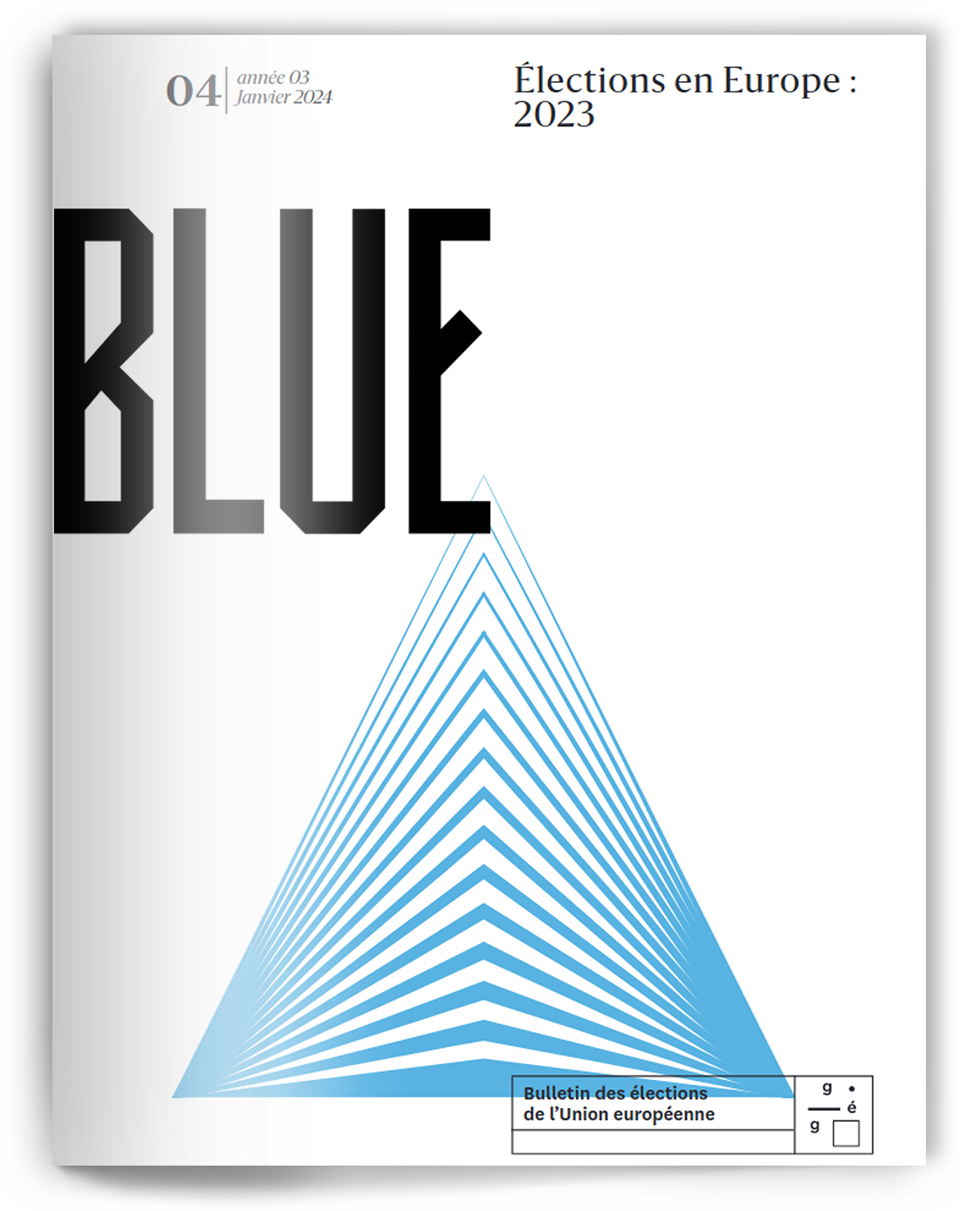
Issue 4, January 2024
Elections in Europe: 2023
On 8 October 2023, Luxembourgish voters were called to the polls to elect the country’s unicameral parliament, the Chamber of Deputies.
The Christian Social People’s Party (CSV, EPP), Luxembourg’s traditional center-right party, came out on top with 29.2% of the vote (+0.9 pp), up 0.9 percentage points. The CSV has been the main party in the Chamber without interruption since 1948. However, it had been in opposition since 2013, when the Democratic Party (DP, RE), the Luxembourg Socialist Workers’ Party (LSAP, S&D) and the Greens (Greens/EFA) formed a government coalition under the leadership of Prime Minister Xavier Bettel (DP).
The big losers of this election were the Greens, who stood at 8.6% (-6.6 pp). The Greens were the junior partner in the incumbent “Gambian” coalition – named after the colors of the Gambian flag – along with the DP and the LSAP. In the next term, the party will hold just 4 seats in the Chamber, down from 9 in the previous legislature. At the same time, it loses the ability to form a political group. The Left party (GUE/NGL) fell to 3.9% (-1.6 pp) but retained its two parliamentary seats.
The two senior governing parties, the DP and LSAP, won one and two additional seats respectively, obtaining 18.9% (+1.3 pp) and 18.7% (+1.8 pp) of the vote. Other winners include the right-wing populist and eurosceptic Democratic Alternative Reform Party (ADR, CRE), which took 9.3% (+1.0 pp) and 6 seats (+1), as well as the Pirate Party (Greens/EFA), which took 6.7% (+0.3 pp) and 5 seats (+1).
On Monday, October 9th, Luc Frieden, who headed the CSV list in these elections, was appointed as a formateur by Grand Duke Henri. On the evening of the same day, the CSV and DP announced their intent to begin negotiations with the goal of forming a new center-right coalition. With 21 and 14 elected members respectively, the two largest parties in the Chamber hold a comfortable majority of 35 seats (out of a total of 60). Moreover, given the ideological closeness between the CSV and DP, this alliance seemed natural, leading the CSV to turn down the LSAP’s offer of parallel negotiations.
The new Frieden-Bettel government finally took office on 17 November 2023. Former Prime Minister Xavier Bettel is now Deputy Prime Minister and Minister for Foreign Affairs. The cabinet comprises 8 CSV members and 7 DP members. Although the Liberals no longer lead the government, they have obtained one additional ministerial office with respect to the previous term, and continue to play a central role within the executive.
The data
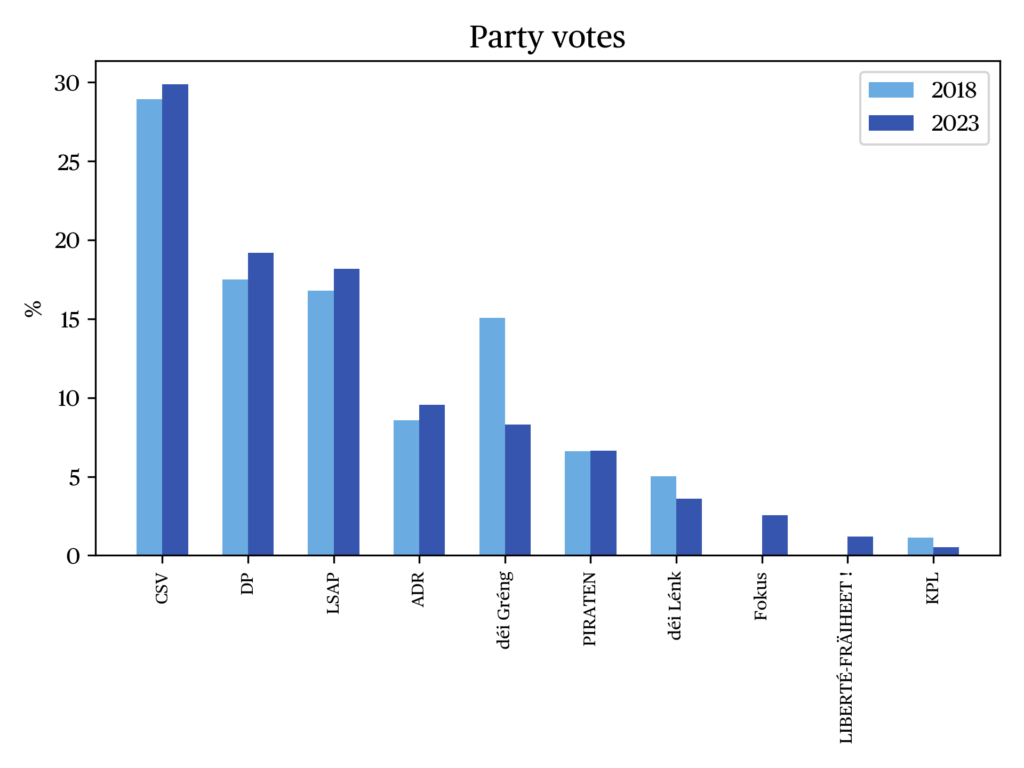
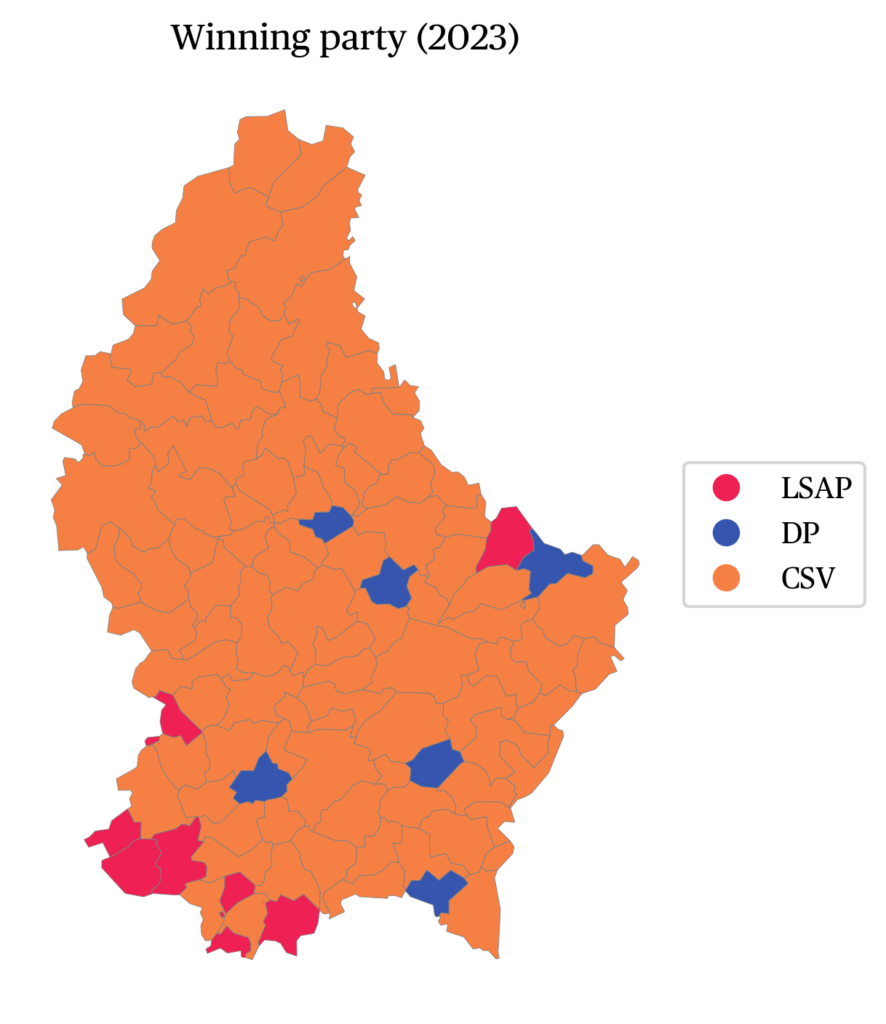
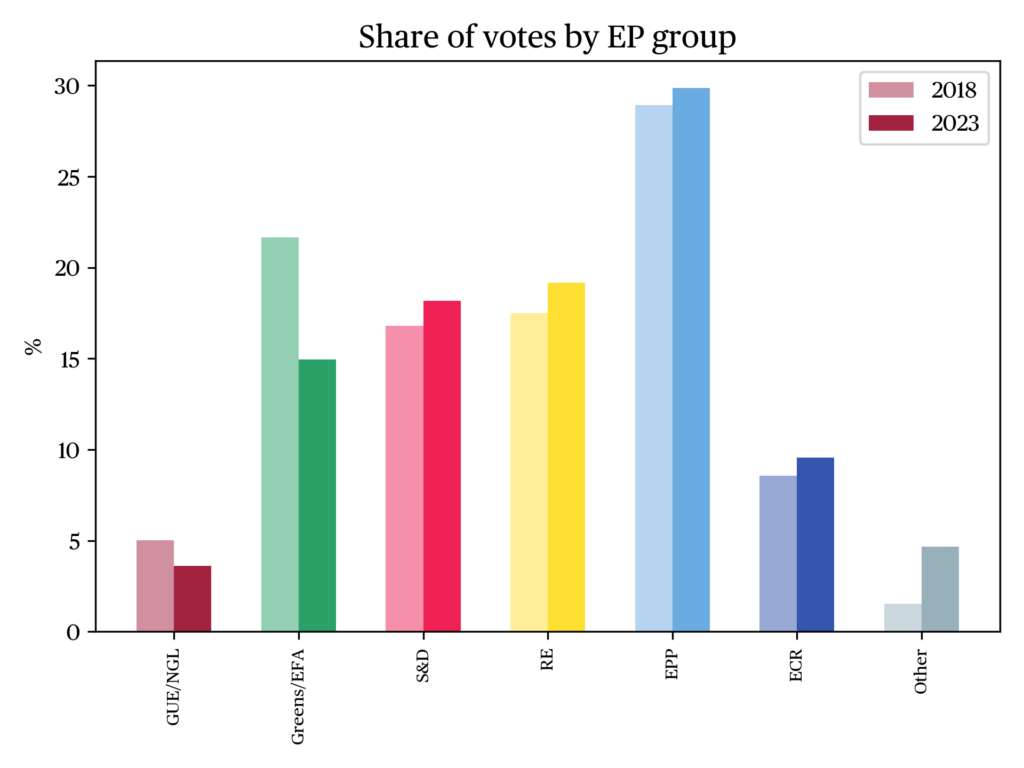
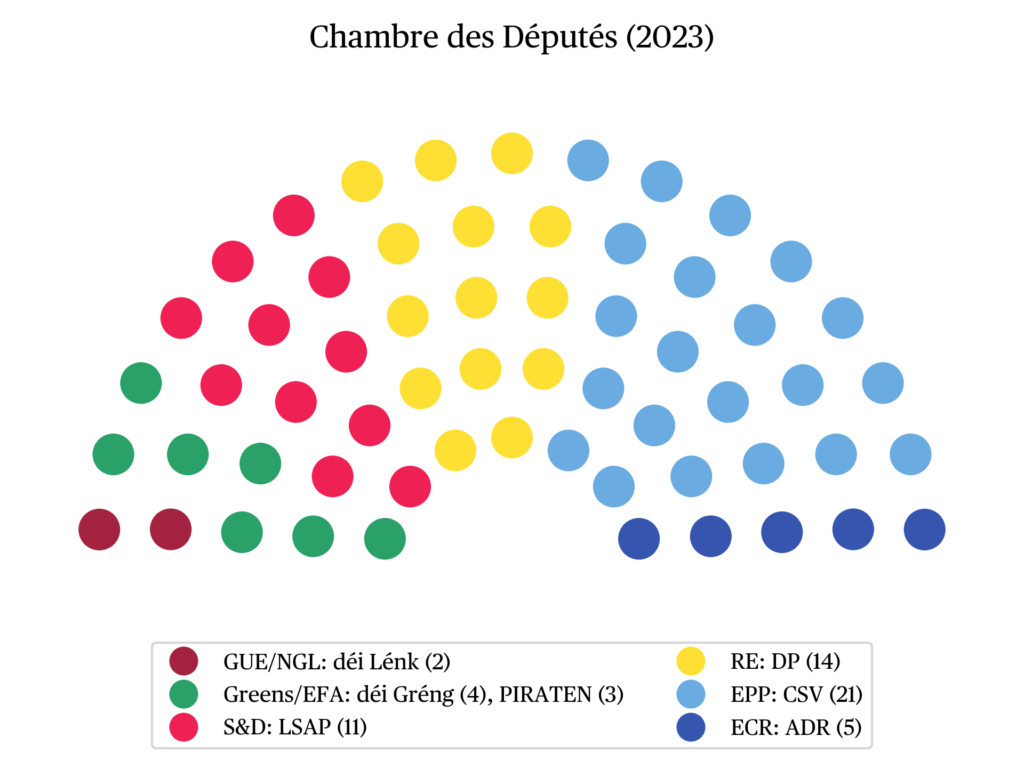
citer l'article
François Hublet, Mattéo Lanoë, Parliamentary election in Luxembourg, 8 October 2023, Jun 2024,
à lire dans cette issue
voir toute la revue





